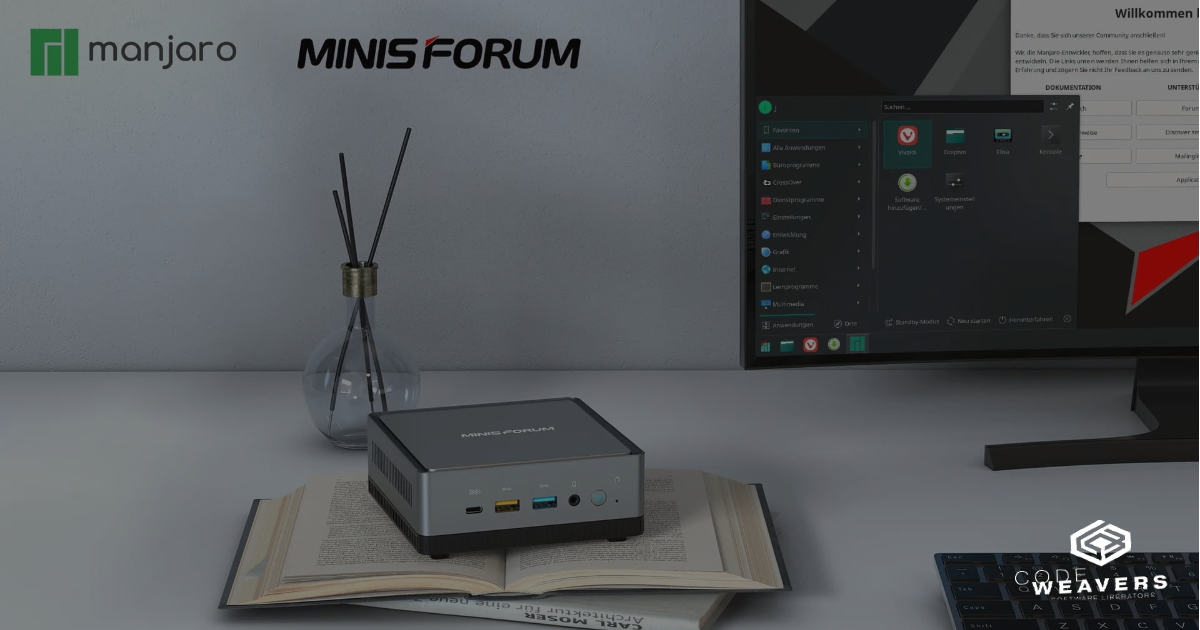
For each of my nearly 15 years at CodeWeavers, my CEO, Jeremy White, has predicted that ‘this year is the YEAR OF LINUX’. Each year; and from what I’ve been told, several years prior to my joining in with the company. Who does that? That level of faith and certainty in something so ridiculous is unprecedented. Imagine making the claim that an obscure operating system will one day take over the world? It’s like claiming electric cars will one day surpass cars running on fossil fuels; or, digital music sales will surpass traditional record sales; or, video games will one day be considered a source of entertainment like movies and concerts. Come to think of it, maybe, THE YEAR OF LINUX isn’t all that farfetched.
For the past two years, I have participated in BOILING STEAM’s, “BOLD PREDICTIONS FOR LINUX GAMING”. It’s a really fun exercise where a handful of people in the industry make wildly irresponsible predictions as to what they believe will happen in Linux gaming for that year. It’s the type of exercise where us fanboys can tout the greatness of Linux while imaging a world where THE YEAR OF LINUX is not at all farfetched; but instead, a certainty before regressing back to a much different reality.
But the last two years in Linux gaming has given me – HOPE. I can hear the distant thunder in the not-so-far off future of a world where Linux is on par with macOS and to maybe a lesser degree, Windows. That thunder is innovation, and it feels like it’s coming to Linux. It’s the ‘juice’ that gets people excited; that attracts crowds; and changes the status quo. The thunder first started when Valve announced the SteamDeck in 2021 launching a Linux based handheld PC platform. Sure, other companies had previously released handheld gaming computer; but, no one else combined the specs of a gaming computer with a handheld form factor based on Linux OS. No one else had made the concerted effort to bring the content, in real actual games, to the Linux platform (via Proton). And no one else had thought to create the type of customer experience that is both satisfying and unique at the same time. Personally, I focus on ‘the experience’. Games come and go, but it’s the experience that takes me back to when my parents bought me an Atari 2600 some 43 years ago. It’s the experience that makes me reminisce in the games I loved. It’s that first experience that made me follow the Atari 2600 with more experiences like a Nintendo NES, then a Nintendo SNES, then an Apple IIc, then a personal computer, and eventually into technology related jobs which lead me to becoming the President of CodeWeavers. It’s passion. It’s that kind of passion that starts an UPHEAVAL.
Have you ever been captivated by something? Something that has held your interest? Something that you could not easily dismiss? Something you found yourself going back to again, and again, and again? All it took was that initial spark to change your mindset. For Linux, I think that ‘spark’ could very well be the SteamDeck. And, I think that spark could be the start of something very disruptive – Linux adaptation. If the SteamDeck moves the market towards Linux, others companies, other innovators, other influencers will follow. And where there is a market and an ecosystem and a base of absurdly loyal customers, you have the makings for change. To that point, other companies are entering this market. One of my favorite new devices is the EliteMini UM 700 PC with Manjaro Linux. With SteamDeck like specs, this mini-PC is poised to play your favorite Steam games via Proton in a compact form factor weighing just over one pound. In full disclosure, the EliteMini UM 700 includes a license of CrossOver Linux so you can use it to also work on the occasional spreadsheet or open Quicken to update your personal budget. And I expect MORE innovative devices, more games, and more content being brought to or created for or made available for Linux devices throughout this YEAR (OF LINUX).
And as everyone knows, every revolution was founded in the upheaval of the status quo. You can look this up. Our history books are filled with example after example after example of long term change resulting from the disruption of the previous normalcy. Governments, including the one in the United States, were formed from the minds of leaders with the intent of disrupting the then current state of affairs. Countless businesses, like Netflix, Amazon, and Skype, were born from the idea of how things can be done better while creating a lasting experience. Linux finally feels like it’s on that track – that it is being used in creative ways that will disrupt the current state of technology for years to come. And in doing so, 2022 is likely going to be remembered as THE YEAR OF LINUX.
Of course, great people, like my CEO, have stated this previously… but, it feels different this time.
About James B. Ramey
James B. Ramey is the CEO of CodeWeavers. His life long love of video gaming started at the tender age of six with an Atari 2600 and evolved over time to include Nintendo, Super Nintendo, Apple Mac IIc, Windows PC, and MacBook Pro. When not fiddling with technology, James enjoys cooking, travel, debating politics in the office, and spending time with his wife, daughter, and their two rescue dogs. For the past 20 years, James has worked with clients around the world in best implementing technology to maximize a return on their investment. He is a graduate of Moorhead State University and earned his MBA from the University of Phoenix. You can find James on Twitter at @jbramey.

 James Ramey
James Ramey
